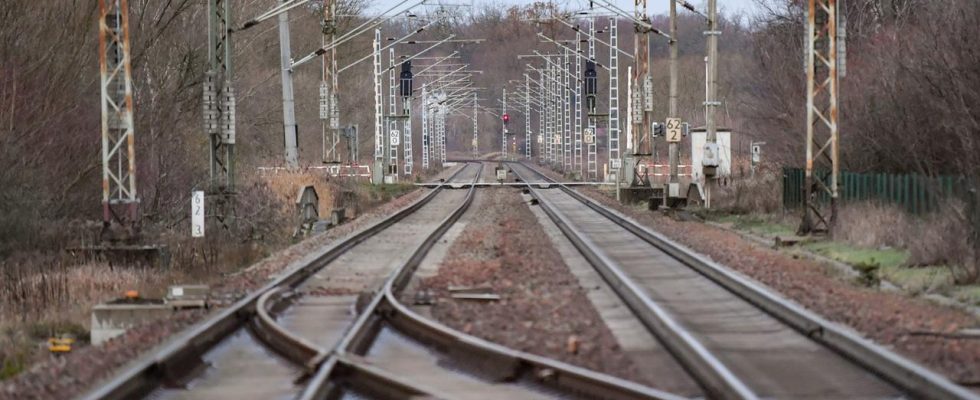The traffic light wants to invest many billions in the modernization of Deutsche Bahn. But where will the money come from now? The sale of federal shares in Post and Telekom could be part of the solution.
The federal government wanted to invest 40 billion euros in Deutsche Bahn – the money should be made available from the federal budget by 2027 to modernize the rail network. “We have the best conditions to finally turn on the turbo for the railways,” said Federal Transport Minister Volker Wissing at the rail summit in September.
There can probably be no more talk of that now. Actually, 12.5 billion euros – more than a quarter of the promised financial aid – should come from the KTF climate and transformation fund. But since the Federal Constitutional Court declared the KTF illegal in November, the money has been missing. So is the modernization of Deutsche Bahn on the brink?
The government has announced that it will raise the necessary money for railway modernization differently. Federal Finance Minister Christian Lindner announced “creative ways”. When announcing the budget agreement in the middle of the week, Federal Economics Minister Robert Habeck also emphasized that investments in the railways would not be saved, but should be financed differently.
Funding gap of 12.5 billion euros
But where will 12.5 billion euros come from if at the same time the debt brake is to be adhered to and no new special fund is to be set up? The government’s idea: The money could be raised through an additional increase in Deutsche Bahn’s equity capital. In the previous budget draft from August this year, it was planned that the 40 billion euros would consist of 12.5 billion from the KTF, a further 12.5 billion from an equity increase, 11.5 billion from the budget and three billion from the railway.
Instead of 12.5 billion euros, equity capital could now be increased by 20 billion euros. This is reported by the “Handelsblatt”, citing government and supervisory board circles. In order to be able to finance this equity increase, according to Lindner, the government wants to use privatization proceeds from unnecessary federal investments “partially to strengthen the railway.”
The finance minister has not yet given any details – but this seems to be the most attractive solution for the government at the moment. If the increase in equity capital were financed through the sale of federal investments, it would not be a violation of the debt brake.
Selling a stake is probably not enough
As several media outlets consistently report, the sale of the stakes in Telekom and Deutsche Post is being discussed in government circles. The federal government directly holds 13.8 percent of the Telekom Group, with a further 16.6 percent held by the state development bank KfW. According to current figures, the sale of this stake alone would bring in 33.9 billion euros for the federal government. And a sale of the 20.5 percent stake in Deutsche Post, which is also owned by KfW, would generate a further 11.6 billion euros.
It remains questionable, however, whether the federal government would sell all of the holdings. The “Spiegel” reports that the government wants to retain a strategic stake of 25 percent in Telekom. The sale of the remaining shares would then bring around six billion euros into the coffers – but not nearly enough to plug the financing gap at the railway.
What does DB Schenker bring?
That’s why more and more people in charge seem to be placing their hopes primarily on the sale of the railway subsidiary DB Schenker. The logistics group is highly profitable, generated the largest profit in the company’s history last year and also achieved a significant operating profit of 626 million euros in the first half of 2023.
The sale has been discussed for some time, and Transport Minister Wissing spoke at the weekend Report from Berlin again in favor of a quick sale: “We want this to happen as quickly as possible,” said Wissing: “We can also make good use of these funds to invest in the railway infrastructure.”
According to information from Handelsblatt, the bidding process has not yet begun, but the Arab investor ADQ, one of three sovereign wealth funds in the Emirate of Abu Dhabi, has expressed interest in DB Schenker. According to the business newspaper, Schenker could be valued at twelve to 15 billion euros.
The proceeds from the sale of DB Schenker could then flow into the general renovation agreed at the rail summit in September. As part of this, numerous train stations are to be modernized and 40 route sections are to be renovated by 2030. Next year, the Riedbahn between Frankfurt and Mannheim will initially be completely closed and modernized for several months. The ICE route between Berlin and Hamburg is also expected to be closed for months in the next two years due to construction work.

